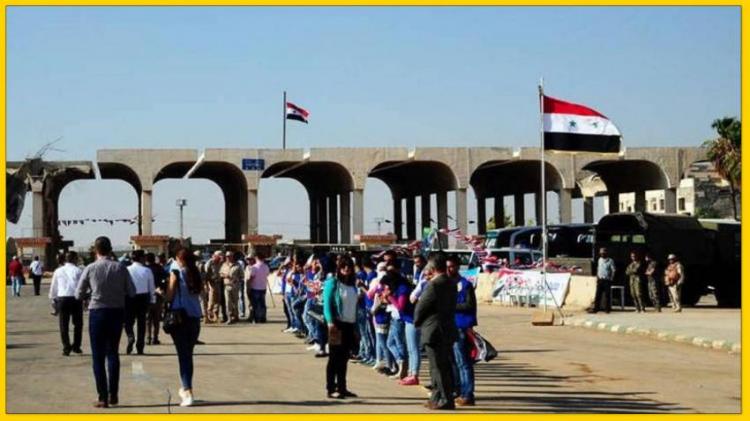Under the guise of refugees’ return, Lebanon gesturing to normalize relations with the Damascus
Beirut – North-Press Agency
Layal Khroubi
The suggestion by the Lebanese President Michel Auon of the normalization of relations with the Syrian government under the title of the return of Syrian refugees in the UN platform in New York, has opened the door again to an internal Lebanese debate, which attracts two main parties, the allies and opponents of the Syrian government.
At a time when the Syrian refugees file is pressuring Lebanon because of the lack of a clear policy in dealing with it, and the fragility of its administrations, which has reached the point of violating the Lebanese laws in issuing and implementing some resolutions. According to Lebanese opponents of the Syrian government, any talks of progress towards Damascus or increasing the level of contacts and visits to and from Damascus is considered a leap to the inevitability of the Lebanese consensus in this file, and to go beyond the vision and decisions of the international community and the Arab League, thus leading to the isolation of Lebanon at the Arab and international levels.
Aoun’s speech also accused some countries of obstructing the return of the refugees, when he said during his speech at the UN General Assembly last week: “We have question marks over the attitudes of some of the actors and relevant international organizations seeking to impede this return, as if the refugees have become hostages in an international game of bartering them when imposing compromises and solutions, which may prompt Lebanon to encourage the process of the return, which is conducted in agreement with the Syrian state to resolve this dilemma which threatens the existence”.
The return of refugees
Mustafa Alloush, a former MP and member of the political council of Future Movement insists that the return of refugees to Syria needs one major initiative from the Syrian government itself, saying: “If the Syrian regime wanted the return of its citizens, wouldn’t it actually push them for return whether in coordination or without it?”
Regarding Aoun’s speech at the United Nations, Alloush said: “There is some simplification of the issue of the return of the refugees. It is deeper than talking about Lebanese-Syrian coordination as much as providing safe and secure return in all its security, political and living aspects for refugees”.
He added that, “What prevents the refugees in Lebanon and Jordan to return, than staying in plastic tents which don’t protect them from cold or heat is the lack of ready land for their return, their future is unclear for them in Syria”.
Alloush told North-Press that, “The Lebanese public security reports regarding the return of refugees to Syria, show that only %20 of the names presented to the Syrian regime for return have been accepted, while the rest have been rejected”.
“The estimated 250,000 refugees who returned to Syria are outside the UN regulations, that is, not registered with UNHCR and have obtained prior approval from the regime. Therefore, we cannot talk about the process of the return, which takes place without looking at these data, but we see them closer to the ongoing movement on the Syrian-Lebanese border. Before the crisis there were about half a million Syrians entering and leaving Lebanon periodically”, he noted.
According to a report released by “Access Center for Human Rights” on the sidelines of the 42nd session of the Human Rights Council in Geneva last week, “There are more than 31 cases of unofficial deportations of Syrian refugees from Lebanon, some of whom have been illegally handed over to the Syrian security services since early 2019”.
The report added that “In the general security, humanitarian and economic conditions of the Syrian refugees in Lebanon, there are strong reasons for their instability and therefore their unwillingness to stay, especially with the rapid deterioration of these conditions coincided with the steady shrinking of humanitarian aid, and the adoption of a hardline policy targeting the Syrian and Palestinian labor, security harassment of non-resident refugees (random security raids on camps or those accused of participating in the armed conflict in Syria), by referring them to the military court in Beirut for any offenses related to committing crimes”.

